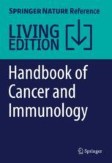Search
Search Results
-
TRPS1 maintains luminal progenitors in the mammary gland by repressing SRF/MRTF activity
The transcription factor TRPS1 is a context-dependent oncogene in breast cancer. In the mammary gland, TRPS1 activity is restricted to the luminal...

-
Fibroblast Isolation from Mammary Gland Tissue and Syngeneic Murine Breast Cancer Models
Cancer-associated fibroblasts (CAFs) are vital within the tumor ecosystem, regulating tumor growth, dissemination, and response to therapy through...
-
Alterations in the mammary gland and tumor microenvironment of formerly obese mice
BackgroundObesity is a risk factor for breast cancer, and women with obesity that develop breast cancer have a worsened prognosis. Within the mammary...

-
Epithelial−mesenchymal transition induced by tumor cell-intrinsic PD-L1 signaling predicts a poor response to immune checkpoint inhibitors in PD-L1-high lung cancer
BackgroundWe investigated the role of tumor cell-intrinsic PD-L1 signaling in the epithelial−mesenchymal transition (EMT) in non-small-cell lung...

-
Human basal-like breast cancer is represented by one of the two mammary tumor subtypes in dogs
BackgroundAbout 20% of breast cancers in humans are basal-like, a subtype that is often triple-negative and difficult to treat. An effective...

-
Elevated expression of wildtype RhoC promotes ErbB2- and Pik3ca-induced mammary tumor formation
Copy number gains in genes coding for Rho activating exchange factors as well as losses affecting genes coding for RhoGAP proteins are common in...

-
Epithelial-Mesenchymal Plasticity: A Link Between Inflammation and Cancer Metastasis
Epithelial-mesenchymal plasticity (EMP) defines the ability of cells to transdifferentiate between epithelial and mesenchymal states. Tumor cells...
-
Methyl-CpG binding domain protein 2 (Mbd2) drives breast cancer progression through the modulation of epithelial-to-mesenchymal transition
Methyl-CpG-binding domain protein 2 (Mbd2), a reader of DNA methylation, has been implicated in different types of malignancies, including breast...

-
The Expression of Non B Cell-Derived Immunoglobulins
Although V(D)J recombination and immunoglobulin (Ig) production are traditionally recognised to occur only in B lymphocytes and plasma cells, the...
-
Alpha-6 integrin deletion delays the formation of Brca1/p53-deficient basal-like breast tumors by restricting luminal progenitor cell expansion
BackgroundThe aberrant amplification of mammary luminal progenitors is at the origin of basal-like breast cancers associated with BRCA1 mutations....

-
Multiple roles for Bcl-3 in mammary gland branching, stromal collagen invasion, involution and tumor pathology
BackgroundThe Bcl-3 protein is an atypical member of the inhibitor of -κB family that has dual roles as a transcriptional repressor and a coactivator...

-
Cell Cycle Dysregulation in Breast Cancer
Cancer, a condition characterized by abnormal cell growth, is closely linked to the cell cycle. In reaction to mitogenic cues, all malignancies...
-
RSK3 switches cell fate: from stress-induced senescence to malignant progression
BackgroundTGFβ induces several cell phenotypes including senescence, a stable cell cycle arrest accompanied by a secretory program, and...

-
A re-appraisal of mesenchymal-epithelial transition (MET) in endometrial epithelial remodeling
Mesenchymal-epithelial transition (MET) is a mechanism of endometrial epithelial regeneration. It is also implicated in adenocarcinoma and...

-
Role of epithelial splicing regulatory protein 1 in cancer progression
As aberrant alternative splicing by either dysregulation or mutations of splicing factors contributes to cancer initiation and progression, splicing...

-
Progesterone receptor antagonists reverse stem cell expansion and the paracrine effectors of progesterone action in the mouse mammary gland
BackgroundThe ovarian hormones estrogen and progesterone (EP) are implicated in breast cancer causation. A specific consequence of progesterone...

-
TWIST1 activates cancer stem cell marker genes to promote epithelial-mesenchymal transition and tumorigenesis in esophageal squamous cell carcinoma
BackgroundEsophageal squamous cell carcinoma (ESCC) is one of the deadliest cancers worldwide. Overexpression of EMT master transcription factors can...

-
SerpinB2 deficiency is associated with delayed mammary tumor development and decreased pro-tumorigenic macrophage polarization
The in vivo functions of SerpinB2 in tumor cells and tumor-associated macrophages (TAMs) during breast cancer development and metastasis remain...

-
Mechanobiology of Collective Cell Migration in 3D Microenvironments
Tumor cells invade individually or in groups, mediated by mechanical interactions between cells and their surrounding matrix. These multicellular...
-
Therapeutic silencing of mTOR by systemically administered siRNA-loaded neutral liposomal nanoparticles inhibits DMBA-induced mammary carcinogenesis
BackgroundMammary carcinogenesis possesses great challenges due to the lack of effectiveness of the multiple therapeutic options available. Gene...

